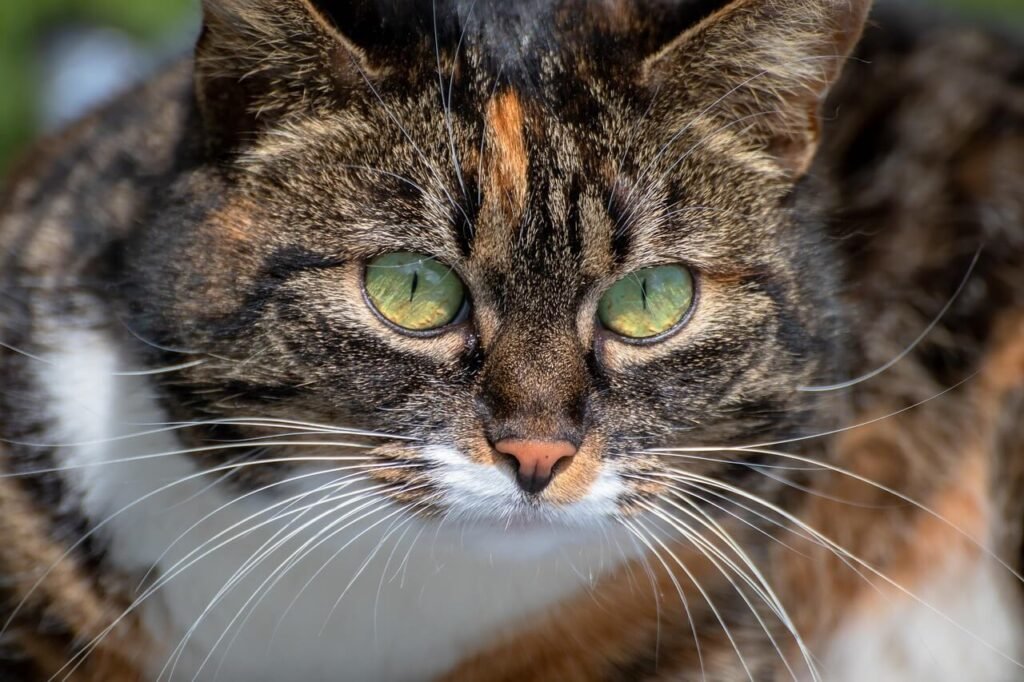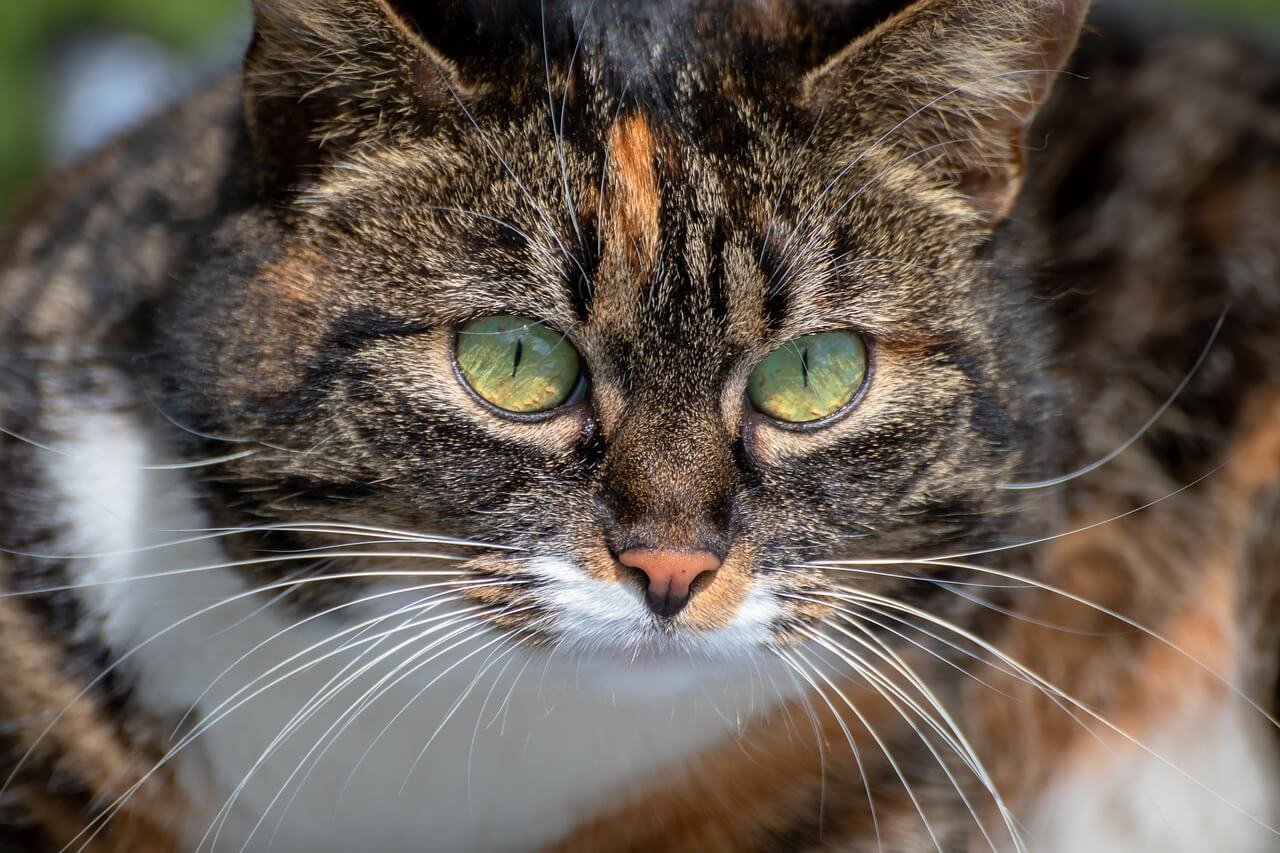Why Is My Cat So Clumsy?
Cats are often portrayed as graceful, agile creatures capable of landing on their feet no matter what. But what happens when your feline friend seems to defy this stereotype and appears unusually clumsy? From knocking over objects to misjudging jumps, cats can sometimes display behaviors that leave us scratching our heads—or laughing at their antics. While occasional clumsiness is normal, persistent or extreme clumsiness might indicate underlying issues. In this blog post, we’ll explore the reasons behind your cat’s uncoordinated behavior, whether it’s harmless fun or a sign of something more serious, and how you can help your furry companion navigate their world with confidence.
Common Reasons for Clumsiness in Cats
There are several reasons why your cat might seem clumsy, ranging from harmless quirks to potential health concerns. Understanding these causes can help you determine whether your cat’s behavior is cause for concern or simply part of their unique personality.
Playful Energy:
Cats, especially kittens, are naturally curious and energetic. Their playful antics can sometimes result in accidental tumbles or collisions.Age-Related Changes:
Senior cats may experience declining vision, muscle weakness, or joint stiffness, all of which can contribute to clumsiness.Inner Ear Issues:
Problems with the inner ear, such as infections or vestibular disease, can affect balance and coordination.Neurological Disorders:
Conditions like epilepsy, brain tumors, or nerve damage can impair motor skills and lead to unsteady movements.Obesity or Lack of Exercise:
Overweight cats may struggle with agility and coordination due to reduced mobility and stamina.
While some causes of clumsiness are harmless, others may require veterinary attention. Observing your cat’s behavior closely can help you identify the root cause and take appropriate action.
Signs Your Cat’s Clumsiness Might Be a Health Concern
Not all clumsy behavior is benign. Certain signs can indicate that your cat’s lack of coordination stems from an underlying health issue. If you notice any of these symptoms, it’s important to consult your veterinarian promptly.
Frequent Falls or Stumbles:
If your cat consistently struggles to maintain balance or falls off furniture, it could signal a problem with their equilibrium.Head Tilting or Circling:
These behaviors often point to inner ear issues or neurological disorders that need immediate attention.Difficulty Jumping or Climbing:
A sudden inability to perform tasks they once did easily may indicate joint pain, arthritis, or muscle weakness.Unusual Eye Movements:
Rapid eye flickering or involuntary eye movements (nystagmus) can be linked to inner ear or neurological problems.Lethargy or Weakness:
General fatigue or weakness accompanying clumsiness may suggest systemic illness or nutrient deficiencies.
Being vigilant about these signs ensures that your cat receives timely care and treatment if their clumsiness is rooted in a medical condition.
Check this guide 👉Why Is My Cat Meowing at the Wall? Best 7 Expert Tips!
Check this guide 👉Why Is My Cat So Gentle with Me? Best 7 Expert Tips!
Check this guide 👉Why Is My Cat Tired After Vaccines? Best 7 Expert Tips!

Harmless Causes of Clumsiness | Potential Health Concerns |
|---|---|
Playful behavior | Inner ear infections |
Kitten energy | Vestibular disease |
Aging-related decline | Neurological disorders |
Temporary distraction | Arthritis or joint pain |
Overweight but otherwise healthy | Nutritional deficiencies |
How to Help Your Clumsy Cat
If your cat’s clumsiness is not linked to a serious health issue, there are steps you can take to support them and reduce their risk of accidents. These tips focus on enhancing their environment and promoting overall well-being.
Provide Stable Furniture:
Ensure shelves, tables, and other climbing surfaces are sturdy and secure to prevent slips and falls.Encourage Regular Exercise:
Engage your cat in play sessions to improve their strength, flexibility, and coordination.Create Safe Spaces:
Minimize clutter and hazardous items that could injure your cat during clumsy moments.Adjust Their Diet:
Feed a balanced diet rich in essential nutrients to support muscle and joint health, especially for senior cats.Schedule Regular Vet Checkups:
Routine visits can help catch and address minor issues before they escalate into bigger problems.
By implementing these strategies, you can create a safer and more supportive environment for your clumsy cat.
Tips for Managing Clumsiness in Senior Cats
Senior cats are more prone to clumsiness due to age-related changes. However, with a little extra care, you can help them navigate their golden years comfortably and confidently.
Install Ramps or Steps:
Provide ramps or small steps to help older cats reach favorite spots without straining themselves.Use Non-Slip Mats:
Place non-slip mats near feeding areas and litter boxes to prevent slipping on smooth surfaces.Monitor Joint Health:
Consider supplements like glucosamine or omega-3 fatty acids to support joint mobility and reduce stiffness.Keep Toys Accessible:
Offer low-impact toys that encourage gentle movement without overwhelming their aging bodies.Be Patient and Gentle:
Senior cats may need more time and reassurance as they adjust to physical limitations.
With these adjustments, you can ensure your senior cat enjoys a happy and comfortable life despite their occasional clumsiness.
Fun Facts About Clumsy Cats
Clumsy cats may not fit the stereotype of gracefulness, but their antics often bring laughter and warmth to our homes. Here are some fun facts about clumsy felines that highlight their charm.
Cats Learn Through Trial and Error:
Clumsy behavior often stems from experimentation as cats test their limits and learn new skills.They’re Not Always Graceful Landers:
Contrary to popular belief, not all cats land perfectly on their feet—especially indoors where surfaces vary.Kittens Are Naturally Awkward:
Young cats are still mastering coordination, making their clumsy moves adorable rather than alarming.Senior Cats Have Earned Relaxation:
Older cats may prioritize comfort over agility, leading to slower, less precise movements.Clumsiness Can Be Genetic:
Some breeds, like Maine Coons or Ragdolls, are naturally larger and may appear clumsier due to their size.
These fun facts remind us that clumsiness is just another facet of a cat’s unique personality.
How to Cat-Proof Your Home
A clumsy cat requires a safe environment to thrive. Cat-proofing your home minimizes risks and creates a space where your feline friend can explore freely.
Secure Heavy Objects:
Anchor bookshelves, vases, and other heavy items to prevent tipping during clumsy leaps.Use Soft Flooring:
Add rugs or padded mats to hard floors to cushion falls and reduce injury risks.Block Hazardous Areas:
Restrict access to balconies, open windows, or high ledges that pose dangers for unstable cats.Organize Cables and Wires:
Tuck away electrical cords to avoid entanglement or chewing accidents.Supervise Playtime:
Keep an eye on your cat during active play to prevent mishaps and intervene if needed.
Cat-proofing ensures your home remains a safe haven for your clumsy companion.
Encouraging Confidence in Clumsy Cats
Helping your clumsy cat build confidence can reduce accidents and improve their quality of life. These tips focus on fostering self-assurance through positive reinforcement.
Reward Successful Jumps:
Praise or treat your cat when they successfully navigate obstacles to boost their confidence.Introduce New Challenges Gradually:
Start with low heights and simple tasks before progressing to more complex challenges.Create Predictable Routines:
Consistent feeding, play, and sleep schedules help cats feel secure and less anxious.Provide Comfort Items:
Familiar blankets, beds, or toys offer reassurance during uncertain moments.Celebrate Small Wins:
Acknowledge incremental improvements in coordination and celebrate your cat’s progress.
Building confidence helps your clumsy cat overcome challenges and embrace their playful spirit.
Frequently Asked Questions About Clumsy Cats
Is it normal for kittens to be clumsy?
Yes, kittens are still developing their motor skills and often engage in playful behavior that can appear clumsy.
Can obesity make my cat clumsy?
Absolutely. Excess weight can hinder agility and coordination, making your cat more prone to accidents.
Should I worry if my cat suddenly becomes clumsy?
Sudden clumsiness could indicate a health issue, so it’s best to consult your vet promptly.
How can I tell if my cat has an inner ear infection?
Look for symptoms like head tilting, circling, or difficulty balancing, and seek veterinary advice if observed.
Do cats outgrow clumsiness as they age?
Many cats become more coordinated as they mature, though senior cats may experience age-related clumsiness later in life.
Embracing Your Cat’s Unique Personality
Clumsiness in cats can be endearing, frustrating, or even concerning, depending on its cause. By understanding the factors behind your cat’s uncoordinated behavior and taking proactive steps to address any underlying issues, you can ensure their safety and happiness. Whether it’s a playful kitten learning the ropes, a senior cat navigating age-related challenges, or a furry friend dealing with a medical condition, patience and care go a long way. Remember, every cat is unique—embrace their quirks and cherish the joy they bring to your life, clumsy moments included!
Do Cats Have Taste Buds? Best 7 Expert Tips! – Discover how cats experience flavors and why their taste is so unique.
Do Dogs Have Taste Buds? Best 7 Expert Tips! – Discover how dogs experience taste, their preferences, and what it means for their diet and health.
Can Cats Taste Sweet? Best 7 Expert Tips! – Discover why cats can’t taste sweetness, how it affects their diet, and tips to keep them healthy and happy.
Can Dogs Taste Sweet? Best 7 Expert Tips! – Discover how dogs perceive sweetness, which foods are safe, and tips to manage their sweet cravings responsibly.





